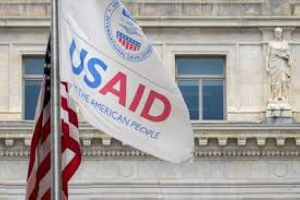By Bright B Nkrumah
Licensing is good, if not the best enforcement of public safety through competency and regulation requirements. It is the way advanced countries inject trust in citizens by ensuring that those behind the wheels are qualified personnel. Accordingly, licensing is required in almost all professions in these countries (Accounting, Law, Medicine, Nursing, etc.)
Although the introduction of licensing is a good thing and, arguably, long overdue, it doesn't mean it should be rushed. Fundamental to the success of all licensing programs are EDUCATION & INFRASTRUCTURE. The public should be educated, given enough time to participate in the introduction of such programs, seminars organized, and even those affected be accorded free lessons/assistance in how to participate. Also, assessment of a surge or rush of participation should be accurately forecasted and the necessary infrastructure put in place to manage this surge due to this implementation. I will elaborate on the infrastructure in a later article. I read a report on www.ghanaweb.com that clearly depicted the frustration and the authoritative posture of the Director of Driver & Vehicle Licensing Authority (DVLA) on the implementation of this licensure. Please read for yourself here:
http://mobile.ghanaweb.com/GhanaHomePage/NewsArchive/artikel.php?ID=360645
First of all, isn’t it interesting how public servants talk? Look, the director, in the report above, shamelessly said drivers who cannot 'read and write' are NOT qualified for a license to drive in Ghana. Another way of saying that is this, if you can’t read or write you must be a moron or mentally unstable. Nonsense. Actually, let us find answer to this question: Drivers who cannot read and write in what LANGUAGE? Furthermore, the Director was alleged to have said “the licensing authority is tired of spending huge sums of government money all the time educating people.” I personally have problems with how public officials in Ghana take the public for fools. Another question for the Director, “educating people in what?” And through what language? And how much did that cost? Who were the beneficiaries? And lots more unanswered questions, by the way. If indeed their “education” began in 2007 as quoted in the report then the Director and his colleagues must resign because obviously they have failed to educate the intended beneficiaries.
Secondly, the report quoted the DVLA director as saying "Driving in Ghana NOW is a privilege not a right." And it seems the only path to this "privilege," is strictly "read & write" without alternative path to achieving this privilege. Although we are not clear about the “read & write” language, it is prudent to assume the Director meant ENGLISH. May I ask the Director, and please feel free to ask him for me:
1) What's the goal of licensing? To help or hurt?
2) Can Ghana afford losing drivers who take the risk to drive on these death-trap roads?
3) What assistance does the government intend to accord those who cannot read/write in English but they can in any of our local dialects?
4) If the onus of English "reading & writing" is on the drivers then why not give them time to enroll themselves in schools? I guarantee the DVLA education which began in 2007 did not tell them to go to school or else they would have finished basic education by now.
5) What are they doing about the lack of road signs in Ghana? This is part of the infrastructure part I promised to address earlier in another article.
Here’s the bottom-line, if DVLA does not make alternate way for those who lack the skills to 'read and write' in English then effectively 50-90% of villagers who drive may be stripped off their "privilege" to drive OR inadvertently make the police, who harass drivers daily with impunity, more corrupt. What a stupid law would that be? Let’s face the facts, the drivers are not resisting the idea of licensing, instead they are resisting the mode of delivery. They feel powerless, voiceless, and intimated by the “read & write” language and the “injection of computers” when they can barely hold pens to write their names. I am certain that had the DVLA given options to take this testing and other tasks in a friendlier atmosphere using select local language or certified English translators, the drivers would never have resisted this idea of testing/examination. Mr. Director, soften your posture and give the intended beneficiaries the needed assistance and they will make your job easier!
Of course using other languages to establish licensing should be considered. Are you suggesting that the ultimate goal for the licensing is to know how to read & write in English? Absolutely nonsense, if so! The ultimate goal is not to learn how to read or write in English or how to use computer but to ensure that the drivers or professionals who drive get the needed skills to do their job and ensure everyone's safety. Whether this goal is achieved in English or Ga or Twi is irrelevant provided it is achieved one way or the other. Language doesn’t drive, people do. And these people should not be bullied into learning English when our governments (past & present) made it virtually impossible for the poor to take their kids to school where English is taught. Yes, many are illiterate but illiteracy is not the same us being moron. Please, allow me to echo this clear and loud, the competency based licensing is not being challenged by either the drivers or the public; we are all in full support! However, the timing, mode of delivery and the lack of resources available to those who, arguably form the bulk of the driving profession, are affected by this new “law” are what we (they) oppose. And surely, DVLA have to revisit this issue and address them properly.
While I, for example, support licensing, I totally reject its attempted imposition, outright disablement of those who are unable to meet the sole requirement of “read & write,” and the posture of officials overseeing this transition. If we want to learn [licensing] good practices, we ought to learn from the best or those who have successful record of implementing such programs. Many people in America/Europe today can't "read & write" English or whatever the official language may be, yet they drive there. Why so? Because the respective authorities make accommodations for translators or translations free of charge! Think about this for a second, suddenly, going to US embassy for a lottery visa has become more of a “right” to the winners than being a Ghanaian citizen wanting to live and drive in Ghana; because most people who are granted their visas and who come to the States and drive can barely read or write their names on paper. No wonder many seek the chance to go abroad. I am certain if DVLA can find a compromise and agree on how the testing should be conducted, it will be beneficial for all parties involved. We should not completely discount this brilliant idea because of illiteracy. Again, unable to read or write does not mean you are incapacitated by default to drive.
In summary, DVLA must listen to the affected people and address their concerns. I don't think the drivers are resisting the idea of licensing but the method, lack of their engagement in the process, and the top-down approach of implementing this program. For once, I am with the drivers. I support their agitations 100%. I rest my case.
Opinions of Friday, 5 June 2015
Columnist: Nkrumah, B. B.














